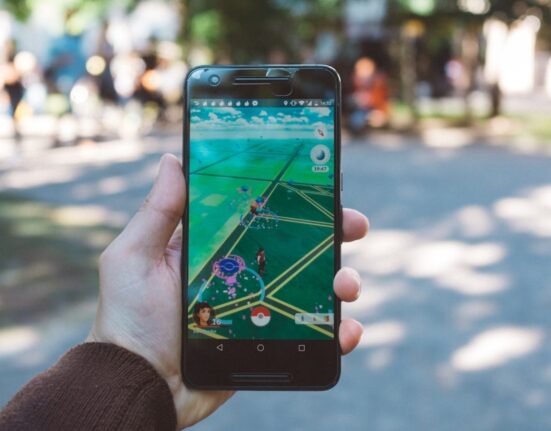Meta CEO Mark Zuckerberg made headlines recently after announcing the company’s latest virtual reality (VR) headset, the Quest 3, amidst his busy schedule of intense workouts and martial arts tournaments over the Memorial Day weekend. This new device, set to be released in the fall, promises improved graphics performance, a slimmer design, and more powerful mixed reality capabilities compared to its predecessor, the Quest 2. With an expected retail price of around $500, the Quest 3 aims to deliver an enhanced VR experience to consumers.
In addition to the hardware upgrade, Meta also unveiled a lineup of new games for the Quest 3, including a power-washing simulator, which has garnered attention and piqued interest among gamers and VR enthusiasts. However, Meta’s announcement comes just before Apple’s highly anticipated debut in the VR market, as they are set to unveil their first-ever VR headset in the coming days. While details about Apple’s headset remain scarce, with rumors of a hefty price tag of $3,000, it is expected to be a game-changer and mark a significant product launch for the tech giant since the Apple Watch’s introduction in 2014.
The emergence of Meta’s Quest 3 and Apple’s imminent VR headset reveal highlight the continued investment of tech companies in the development of virtual worlds, despite the waning hype surrounding the metaverse since 2021. This sustained focus on VR technology indicates that companies recognize the potential and value of immersive experiences and are willing to allocate significant resources to create compelling virtual realities.
So, how does all of this benefit marketers? The growing popularity and advancement of VR technology open up new opportunities for brands to engage with consumers in unique and immersive ways. Here are a few ways marketers can leverage VR:
- Enhanced storytelling: VR allows marketers to create immersive narratives and transport users into virtual environments that align with their brand’s story. Through compelling and interactive experiences, marketers can captivate audiences on a deeper emotional level, fostering brand affinity and connection.
- Product demonstrations: VR provides a powerful platform for showcasing products and allowing potential customers to experience them firsthand. Whether it’s virtually test driving a car, trying on virtual fashion items, or exploring virtual real estate, VR can simulate real-world interactions and help consumers make more informed purchase decisions.
- Virtual events and experiences: In an increasingly digital world, VR offers a way to recreate the atmosphere and engagement of physical events virtually. Brands can host virtual conferences, trade shows, or product launches, enabling attendees to network, explore exhibits, and participate in interactive activities from the comfort of their own homes.
- Training and education: VR has immense potential for immersive training experiences across various industries. From employee onboarding and professional development to simulated medical procedures and safety training, VR can provide a safe and realistic environment for learning, improving knowledge retention and skills acquisition.
- Brand activations and gamification: Marketers can leverage VR to create gamified experiences and interactive brand activations. By incorporating elements of competition, exploration, and rewards, brands can increase engagement and create memorable experiences that leave a lasting impression on consumers.
As VR technology continues to evolve and become more accessible, marketers should consider integrating virtual reality into their strategies to stand out in a crowded digital landscape. By leveraging the immersive and engaging nature of VR, brands can forge deeper connections with their target audience, differentiate themselves from competitors, and drive meaningful results.
In conclusion, Meta’s announcement of the Quest 3 and Apple’s impending VR headset launch underscore the ongoing investment in virtual reality technology by tech companies. While the metaverse hype may have subsided, the advancements in VR present significant opportunities for marketers to create impactful and immersive experiences, enhance storytelling, showcase products, host virtual events, provide training, and engage consumers in unique ways. By embracing VR, marketers can stay at the forefront of innovation, foster customer loyalty, and drive business growth in the ever-evolving digital landscape.











Leave feedback about this